 THE WORLD
THE WORLD « In Which We Pass The Bottles Back And Forth »
 Friday, November 5, 2010 at 11:40AM
Friday, November 5, 2010 at 11:40AM 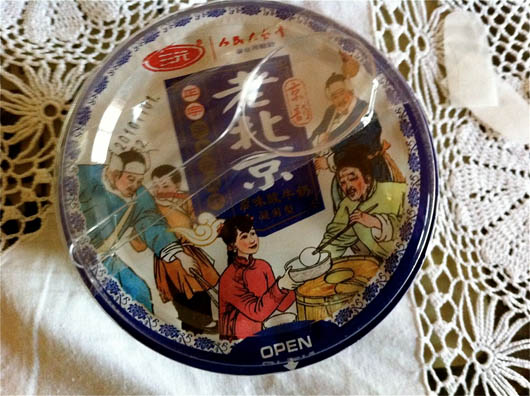
Coming Up For Air
by LUCY MORRIS
In my room here in Beijing, my child-sized desk sits opposite a window that looks out on decrepit socialist-style apartment buildings and great capitalist skyscrapers. I came here in the great tradition of escape. I write from here, a glass of Mandarin orange juice beside me, because I thought that I could not write any closer, because that had always been the plan after a tumultuous year and a half of post-grad life: to parcel up the concerns and heartbreaks – the break-ups and broken leases, protracted job searches and abrupt job desertions – into a big red suitcase, dump them in a black duffel bag, strap them like a passport holder to my chest, and only then unpack, only then rehash in the comfort of my best friend’s apartment here, with dumplings steaming away on our two-burner stove in the kitchen.
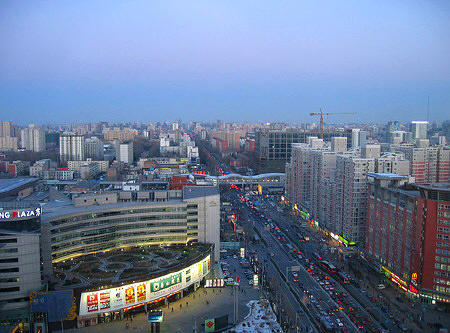
Catherine lives in Wudaokou, a student neighborhood, sort of like a Communist built Madison, WI. It contains both of what people call the MIT of China and the Harvard of China. I have stayed in this area once before, three years back, when my brother was studying in the foreign language program of the Harvard; now, he lives and works as an editor a couple more grown-up neighborhoods over, and Catherine bikes to the MIT-type campus every morning before I wake up. We joke that I am her housewife even though she is better at both cooking and cleaning than I am. In reality, I rarely venture beyond the neighborhood alone because I haven’t yet learned my way around and feel embarrassed about not knowing more Chinese.
The city is whiter – as in more Caucasian – than I remember it being. The air seems denser with khaki hued pollution, although supposedly air quality has been improving, and the humidity is so negligible that the clothes we hang on lines to dry are quickly ready to wear. More wireless networks appear when I try to connect, but my e-mail is still inaccessible without a VPN, as are the triple procrastination threats of Facebook, YouTube and often gmail, with all its capacities for video chatting with friends back in the States. We have not yet succeeded in setting up our own wireless; instead, we share a single ethernet cord on the premise that limiting our internet usage will make us more productive at what we call our “work work.” For Catherine, that is her research job (re-search, she pronounces it, emphasis on the second syllable, like we are professionals, or British), and for me, it is Russian business translation for a company back in New York. It is not lost on me that I came across the world to work in two languages still not (in the case of English) and no longer (in the case of Russian) really spoken here. But that is the point, I guess: to say things in writing that could not be understood aloud.
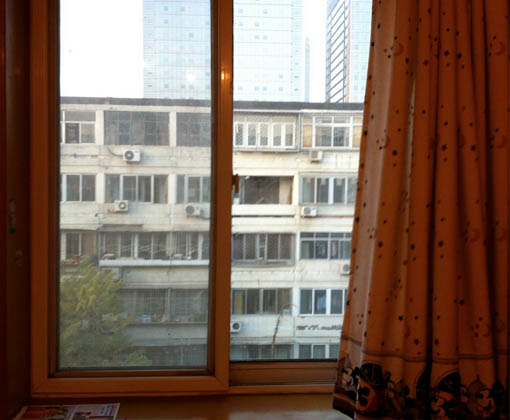
For a while before I came here, I was dating a man who was half Chinese and who would lecture me on my white privilege while professing that he was terrified of China, for reasons that ranged from the hazily racist to the half-heartedly political. “Stick to the Cantonese Diaspora and Hong Kong,” he instructed. Alex had never been to China, and in fact his ancestors left in the nineteenth century for Japan, where he had spent some time. I asked him if he liked Japan; I have never been and might consider it now that I’m on this continent. “It’s fine,” he said. “But ask me if I like the Japanese.” I did, and he does not.
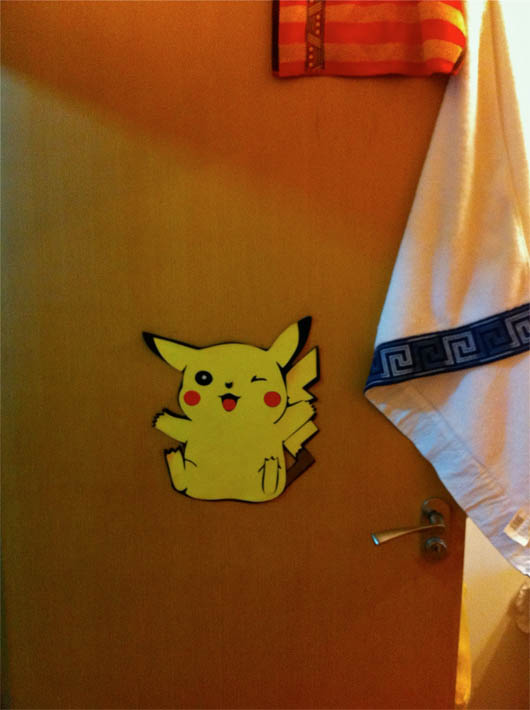
Before I left, Alex and I would go out to eat at the only good Chinese restaurant in Milwaukee, where we were both camped out for varying stays – mine two months, his ten years – on tenuous loan from our real homes and lives in New York. Most of my fall clothes were in storage so I wore a Quiksilver hoodie everywhere that he had gotten for free on a rap tour he was managing.
Alex was eighteen years my senior and about my height. I had often summed up romantic entanglements of mine with the phrase, “It seemed like a good idea at the time,” but with him it did not even seem like a good idea at the beginning. He had a daughter not significantly younger than me, and during our second meal at Fortune, he showed me the booth where he usually sat with her. On our next trip, the first where they gave us the for-Chinese-only menu, we were seated in that same booth. I thought about switching, but did not want to create an issue if he didn’t see one. “What if we are just working out our own issues on each other?” I asked him once. “What if we are?” he said. “I guess I don’t see what’s wrong with that exactly.”
I passed this onto Catherine, then busy settling in and finding us a home in China, and she was of a different mind. “Buy your ticket,” she advised. "Be careful with love declarations. And don't get in too deep."
Alex and I spent autumn afternoons after late nights and even later wake-ups eating fatty-tasting faro in red bean sauce and double-fried Cantonese-style Chow Mein, piles of shocking green Szechuan string beans and deep bowls of soft tofu. We ate so fervently we barely spoke to each other, not until the post-meal tea and oranges, and then we took the leftovers home to eat after bar-time. I was occasionally so drunk I had to lean on his shoulder to stand, but still somehow adroit enough to eat with chopsticks, albeit the stupid American child way, thumb sticking up and the tips of the chopsticks crossed, not held gracefully near the top like everyone does here.
And this was not the first time I had chosen Chinese food over meaningful discussion. During our second year of college, Catherine and I had discovered that we could lug pounds and pounds of frozen Chinatown goods – scallion pancakes, red bean or meat bao, dumplings – back to our dorm kitchens outside of the city. With wrists weak from typing and mouths sore from explicating, we dug into our dough products like it was the only assignment we truly cared about. We didn’t talk about our futures, internships and jobs and apartments for the summer ahead, or the relationship psychodramas we were playing out together but separately, with different men. She delicately flipped the green-flecked flour pancakes in a roommate’s cast iron pan and then onto a shared plate, and we ate, and we were quiet for once.
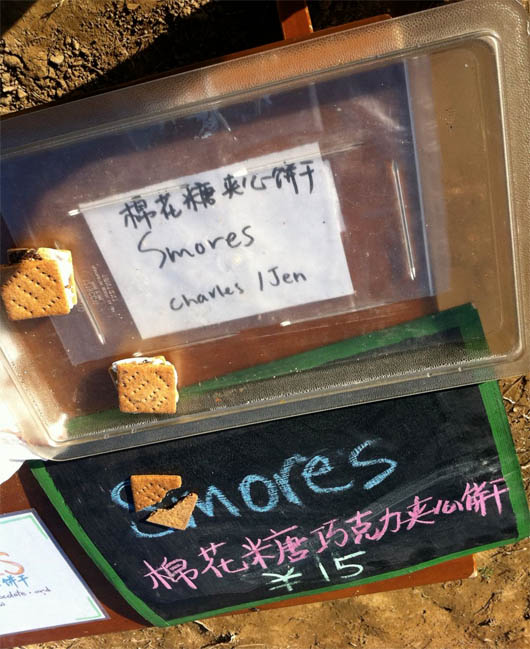
A year after that, I was studying in Russia, and it was over winter break that I took the train from Siberia to Beijing to see my brother. My host mother had packed me off with a giant Macy’s-sized shopping bag of food, bland cheeses and black breads, pickled beets, expensive grapefruits imported from the very country I was headed to, homemade pirozhki and plastic pouches of instant mushroom soup. After 65 hours of train travel, I arrived in China with the bag still half-full. I handed it off to my brother; I was done with Russian food, the beiges and yellows and starches of it all. I had lost 15 pounds in four months, and all I wanted to eat was greens. So we did: garlicky sautéed greens like our mom used to make, steamed greens, leafy greens dunked in hot pot and allowed to fan out in the broth, lacy raw greens edging plates of stinky tofu. We ate Uighur food and Korean food and on New Year’s Eve we had Thai food, none of which could be found in my provincial Russian city.
The night before I left we had an expensive and indulgent Indian meal, in a kind of remembrance or honor of the Indian Sunday brunches our family ate weekly back in America. Neither of us were sure when we would be home next, let alone at the same time. In the end, it would not be for more than two years.
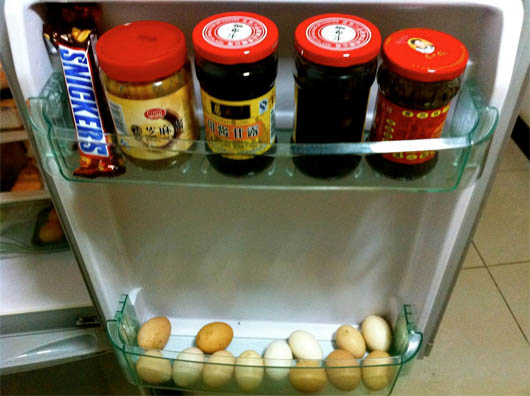
Here, I am living and loving less hungrily this time around. I write e-mails to Alex, and he responds promptly but also stoically. I compose laborious questions about current events like it will evince whatever it is I want to hear from him.
He writes how odd it is to him that my class of young Americans is migrating to one of the more oppressed countries in the world in search of some vague sense of post-grad freedom. He is not wrong about this: I am here “doing me” in a culture where “doing you” is not encouraged. But in the mornings when I am alone with this ambivalent knowledge, I still get up and pour a glass of a lassi-like yogurt drink from a jug that looks like dishwasher detergent, purchased at the combination supermarket-department store a block away from our apartment. I dismantle a pomelo with more care and patience than I make love, easing off the thick skin, gently plying apart long pieces and peeling back the membranes to get right to the flesh of the fruit. I wash yesterday’s wok before Catherine comes home for lunch, yielding bags of fresh noodles (2 kuai) and eggs or tomatoes purchased at the makeshift stand just outside our door. She sautés everything in sunflower oil, crushes Szechuan peppercorns in her hands and dusts them over the wok, and we douse our bowls of food in sesame oil and soy sauce, passing the bottles back and forth with greasy, ravenous hands. We don’t have a dining or living room, so we sit on her bed and plan our afternoons.
The Western bakery goods at the cafes here where we spend those hours are better than in New York. The pies at The Bridge on Chengfu Lu are fresher, the crusts flakier and fillings richer, than the ones at Think Coffee on Mercer Street, where Catherine and I spent a lot of our job searching or telecommuting afternoons a year ago. I think I could stay here for a while, maybe get really good at something. I tell myself that if I write 2,000 words a day, I’ll have a novel in a month. Or I could start a Chinese-Russian tea export business, like Alex once suggested. I could study for the LSATS, retake the practice tests at the back of the prep guide I brought until my score is pretty good. But in truth, our talks about the future are only hypothetical: travel plans and visa renewal plans and, very distantly, grad school plans. We could take the bus to Mongolia in December, or the train to visit my friends in Russia and then onto Germany. Maybe we’ll go to Thailand for spring break.
For now we’re planted here in Beijing. The food is excellent, and it is cheap. The giggles I share with Catherine are free, $12 cheaper than the movies I’d make Alex take me to when I needed laughs back home, sometimes so badly it felt like its own kind of hunger. It’s true that hot pot, eaten athletically and excitedly on the third story of a building not far from here, steams up my glasses, but so does kissing someone on one of those frozen winter afternoons that seem, although they are probably not, unique to the Midwest.
Lucy Morris is a contributor to This Recording. This is her first appearance in these pages. She is a translator and writer living in Beijing. She tumbls here.

"Agents of Love" - Wolf Parade (mp3)
"In the Direction of the Moon" - Wolf Parade (mp3)
"Semi-Precious Stone" - Wolf Parade (mp3)

 beijing,
beijing,  china,
china,  lucy morris
lucy morris 





























Reader Comments (4)
I loved this. Thank you for sharing.
i can smell the noodles from new york.
Not quite as good as Janet Evanovich, but still pretty damn good. I'd write more glowing comments but all the excellent writing about food has made me too hungry. Going to eat. Trying to decide between pommelo, Indian, chow-mein, bakery...
Hey Lucy and Cat!
I stumbled upon this link through facebook and just wanted to say hi and send my love from ecuador. and thanks, lucy, beautifully written, and as someone who is trying to do that "doing me" thing in another place very far from the midwest... it hit a lot of familiar points.
abrazos from Ecuador
-Sarah